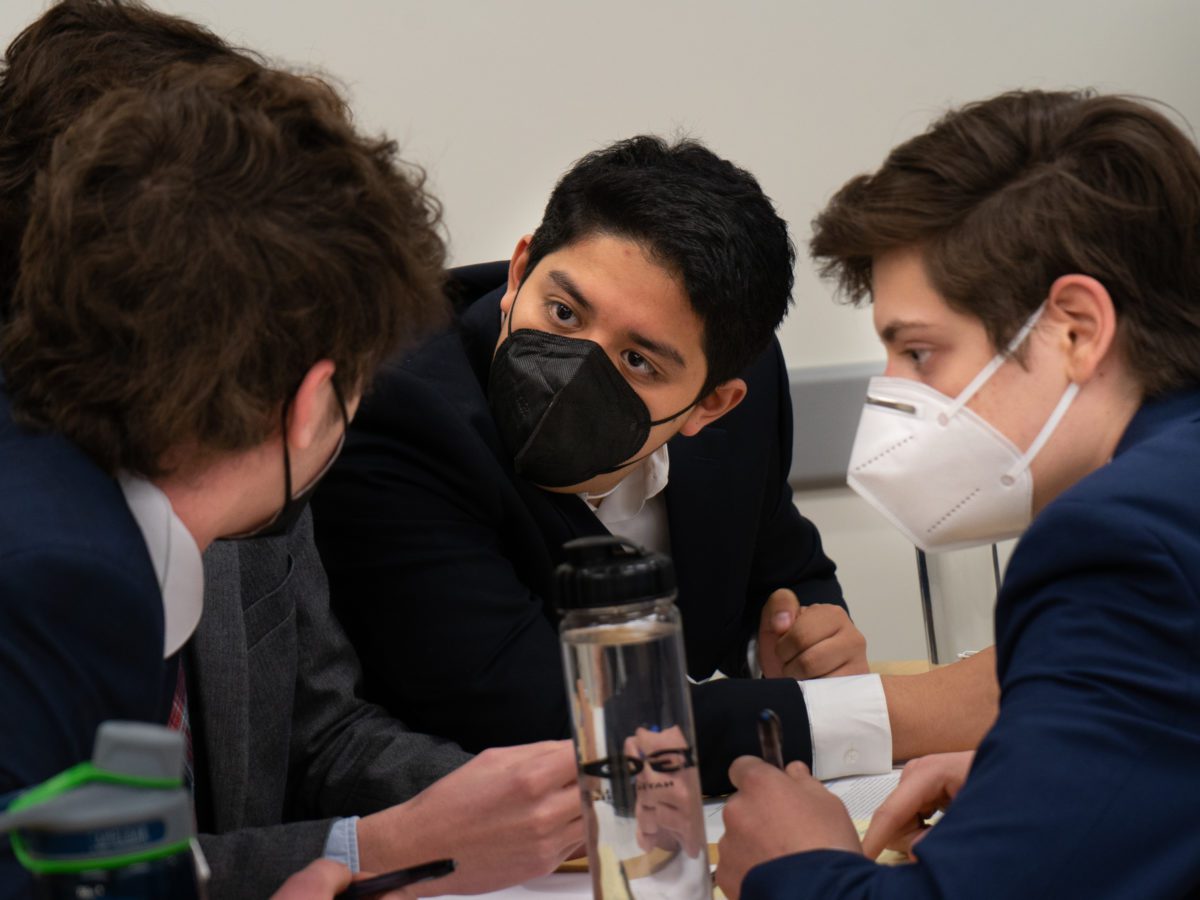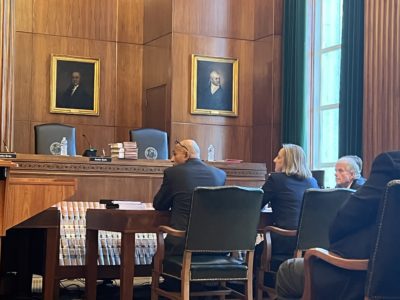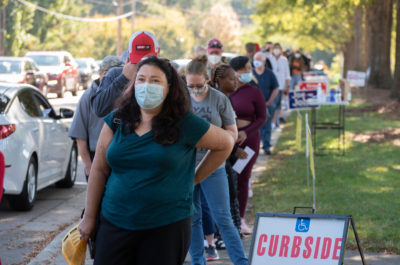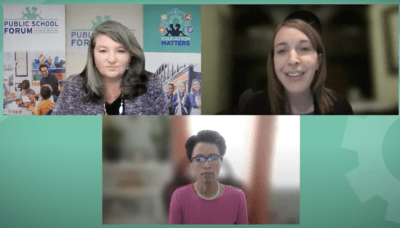
Share this story
- “Ethics Bowl students model a way to exchange ideas that is not derailed by disagreement, but deepened by it,” write @theparrcenter’s Alex Richardson and Michael Vazquez.
- .@theparrcenter’s National High School Ethics Bowl competitions award students for “their reasoning rather than their rhetoric, on the consideration they show to their peers, and on the extent to which they engage with views different than their own.”
|
|
Americans are known the world over for their propensity to disagree. They are less known for their ability to disagree well or productively. All across the country, erstwhile forums for deliberation have devolved into performance venues for hyperpartisan cage matches — whether ideological or, in some particularly concerning cases, even physical. City councils, school boards, and the marble halls of Congress all seem to be struggling in the arena against Americans’ anger and partisan performance. The country, pundits and professors tell us, is more polarized than it has been since the Civil War. We no longer know how to talk to each other.
This is why it’s more crucial than ever that we learn — or relearn — the skill of disagreeing about fundamental values in a way that doesn’t render us enemy combatants. These problems and our conversations about them are hard ones, of course, but their being hard should not distract us from their being necessary. And we should look to high school students to show us the way.
In 34 states and counting, teenagers are sitting down together to do the hard work of thinking, talking, and ultimately working together on the tough moral and political issues that define our lives as citizens of a democratic society. They’re talking to each other about many of the same issues their adult counterparts struggle with: book banning, the ethics of protest, the student loan crisis, and reproductive rights, just to name a few recent examples.
These students are preparing to participate in the National High School Ethics Bowl (NHSEB), an outreach program headquartered at the Parr Center for Ethics at UNC-Chapel Hill. In NHSEB-affiliated events across the U.S., students discuss the core moral issues present in a series of case studies authored by experts in moral and civic education. They win or lose in these collaborative yet competitive events on the basis of their reasoning rather than their rhetoric, on the consideration they show to their peers, and on the extent to which they engage with views different than their own.
Sometimes, Ethics Bowl students find themselves converging: collectively advancing their understanding and conversation about the moral essentials of important issues. At other moments — perhaps just the ones when it is most crucial to exercise caution and care, they disagree about the deepest fundamentals — about the very nature of contested concepts like liberty, autonomy, and privacy. They do this not with antipathy or aggression, but with respect for each other, a hunger to understand why they disagree, and a deep desire to learn all they can from the exchange. In their conversations, they signal an openness to each other, to new ideas, and to revising their own beliefs.
These interactions are not something we’re conditioned to value as a society. Ethics Bowl students model a way to exchange ideas that is not derailed by disagreement, but deepened by it. They augment each other’s thinking just as surely as they challenge it. As Deven Pandya from the Virginia High School Ethics Bowl told us at a 2021 event: “There has never been an experience or a greater tool that has made me believe not only that I can be a better person, but that I can challenge the world to be better.” We could all learn a thing or two from these students. Let us challenge ourselves, our conversations, and our politics, to be better.
Recommended reading





